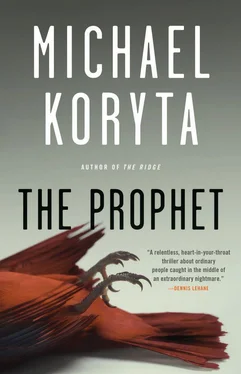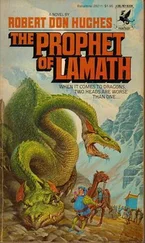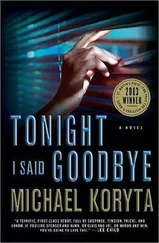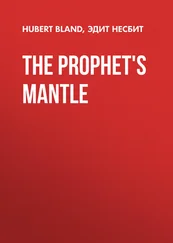The last five hours, you’ve been where?
The pier and the park.
Doing what?
Talking, man, hanging out.
You just forgot to give your sister a ride, is that it?
Well, no, my brother reminded me. But it was kind of an emergency.
Marie was still gone at three, and then at six, and then any half-hearted hope that she might have gone to a friend’s house and fallen asleep or broken an ankle or, hell, even run off with a boy to do the same damn thing Adam had done was gone. The questions grew more pointed, the truth more painful.
Yes, I was supposed to take her home.
No, I did not.
I got in the car with Chelsea Salinas and drove away. We were at the pier, then the park. We had sex on a blanket.
No, I did not call to tell my parents I’d left Marie to walk home alone.
Yes, I passed her heading out of the parking lot.
No, I did not stop to speak to her.
No, I did not see her on the street when I came home.
But he felt that he had. In fact, he felt that she was still there, that on the right night, with the right half-moon rising behind charcoal clouds above the lake, walking into the right cold breeze, he might find her heading into the parking lot in search of the car he’d driven away from her. Felt that if he hit all of those elements just perfectly, he’d see her marching through the dark and toward the lights of the football field, backpack on, and she’d turn and look at his slowing car and flash the cautious smile before remembering that the braces were gone and then finally letting the smile go wide and radiant. She would slide into the passenger seat, call him a jerk, and he’d get her home. Back to her bedroom, where the sign warned away trespassers. It was still possible, somehow, it had to be, because if it wasn’t? Well, fuck this world, then.
He was sitting with his head on the steering wheel, his eyes dry but closed, when Chelsea opened the driver’s door and laid a cool hand on the back of his neck. He eased out a slow breath, kept it from shuddering with an effort, but left his forehead on the wheel and his eyes closed.
“It was five blocks,” he said.
She rubbed his neck, silent.
“Half a mile,” he said.
Her fingers found a knot, kneaded it.
“Rachel Bond was seventeen,” he said. “Did I know that? No. Should I have seen it? Yes. You would have. If you’d been there, if anyone but me had been there…”
She stopped kneading, let her fingertip rest on the knot, gentle but steady pressure, like a doctor trying to draw infected blood. Something faded from him and into the touch, but not the right thing, or not enough of it.
“Seventeen,” he said again.
“Come inside,” she told him, and moved her hand away from his neck.
He shut off the Jeep’s engine, climbed out, and followed her up the steps and through the door to see the snakes.
9
THE DESIRE TO KEEP calling the police caught Kent off guard, and it was impossible to shake. Every ten minutes his mind returned to it: Maybe they know something more now. Maybe Salter will tell you. Maybe there’s some question you can answer that they haven’t thought of yet. Maybe you can ask them to confirm that Gideon Pearce had nothing to do with this.
It was the last part, the ludicrous one, that stalked him with the most diligence, utterly absurd yet utterly relentless. The man who had murdered his sister in the autumn of 1989 died in prison years later, convicted of the crime, and rightfully so. The rational mind reminded Kent of this over and over, but the heart frequently shows nothing but disdain for rationality, and his heart called forth the question time and again.
Two murdered girls, separated by twenty-two years. How many people had been murdered in this country since 1989? This state, this county, this town? They weren’t all linked. But in Kent’s heart these two were.
He did not call the police. If they needed him for anything, they would call. Until then, he would serve only as a distraction and a hindrance. So he turned to football, to the best of his ability. They had lost a practice during a playoff week, and while it had been the right thing to do, it was also a costly thing. The team didn’t meet on Sundays, just the coaches, and that meant player preparation would not begin until Monday. Kent’s team was already forty-eight hours behind the opponent. Forty-eight of 144 prep hours gone before they even started. That was the sort of thing that lost you football games.
The burden of making up that lost time belonged to him.
At the start of his coaching career, he’d spent hours charting plays and breaking those plays down into percentages, until he could show Walter Ward that he understood an opponent’s tendencies better than the opponent did.
“They blitzed thirty-six times when the ball was between the twenties,” he’d inform Ward. “But if it was in the red zone, they never brought pressure on first down. Not once.”
Ward believed in precision, he believed in preparation, but he often dismissed Kent’s detailed scouting reports with a flat smile, altering his own game plan little. If they just played Chambers football, he’d always say, things would work out fine.
These days, under Kent’s leadership, Chambers football meant being the most prepared team in the state. And thanks to computers, the ability to understand your opponent was available in a way it had never been before. The team subscribed to a database called Hudl that was used for sharing game video. It wasn’t a cheap program, but one of the boosters, a dentist named Duncan Werner, covered the cost. Kent loved Hudl. Not only could he easily watch video for every situation he desired, but also the stat breakdown was remarkable.
Blitzes by field position was one click away. Blitzes by down and distance was another. Want to know the percentage of running plays an opponent used on first down? Or maybe how often they passed out of a specific formation? Just click. By Friday morning, Kent would be able to quote these tendencies without pause. He would understand the mind of the opposing coach, what he wanted and what he feared. From that he would be prepared to avoid their strengths and hammer their weaknesses. You would not surprise him on the football field, you would not surprise his team. They would see teams that were bigger, stronger, and faster, but never would they see a team that was better prepared.
Never.
On Saturday afternoon he sat on the living room floor with his back against the couch, a laptop computer to his left, a notepad to his right, and, every few seconds, a Nerf basketball in his lap. He was tossing it around with Andrew, who approached the task more like a rabid German shepherd than a budding athlete, and Lisa was doing homework, though she had none to do. That was her thing these days, always announced formally—she was going to do her homework now. Just so you knew. Then she’d arrange books at the table and spend her time drawing. Kent’s favorite touch, the one that he and Beth laughed themselves silly over when their daughter wasn’t around, was the slide rule. She’d come across the antiquated math device at a neighbor’s garage sale, purchased it with her own money, and insisted on keeping it at hand, finding the look much more sophisticated than a calculator.
The idea of being a student had suddenly appealed to her. A recent perfect score on a multiplication test prompted her to announce with gravity that she was hoping she could get a scholarship because she understood the Ivy League schools were very expensive. Kent asked where she’d heard of an Ivy League school and was met with a sigh.
Читать дальше












